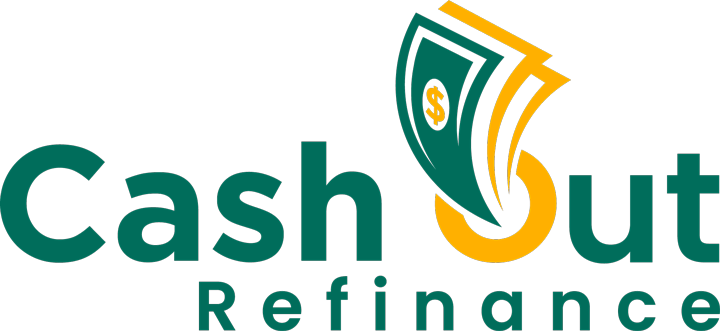Maximizing home equity with jumbo cash-out refinance
For luxury homeowners with high-value properties, maximizing home equity is a smart financial strategy, and one of the most effective ways to do this is through a jumbo cash-out refinance. This type of loan allows you to refinance your existing mortgage, taking out a larger loan and pocketing the difference as cash. Whether you’re planning to fund home improvements, consolidate high-interest debt, or invest in new opportunities, a jumbo cash-out refinance gives you access to substantial amounts of cash using your home’s equity.
In this guide, we’ll walk through the key factors that go into maximizing your home’s equity with a jumbo cash-out refinance, how to qualify, and what you need to know to make the most of this powerful financial tool.

What Is a Jumbo Cash-Out Refinance?
A jumbo cash-out refinance is a type of refinancing for homeowners whose mortgages exceed the conforming loan limits set by the Federal Housing Finance Agency (FHFA). As of 2024, the conforming loan limit is $726,200 for most areas in the U.S., but this limit can increase to $1,089,300 in high-cost areas. If your mortgage balance exceeds these limits, you’ll need a jumbo loan.
With a jumbo cash-out refinance, you replace your current mortgage with a new one for more than what you currently owe, and you take the difference as cash. This loan is especially popular with luxury homeowners who have significant home equity and want to access that value for major expenses or investments.
Benefits of a Jumbo Cash-Out Refinance
Before diving into how to maximize your home equity, it’s important to understand the benefits of a jumbo cash-out refinance:
- Access to large sums of cash: With high-value homes, a jumbo loan allows you to unlock significant equity, giving you access to large amounts of cash.
- No PMI requirement: Unlike conventional loans, jumbo loans typically do not require private mortgage insurance (PMI), even when the loan-to-value ratio exceeds 80%.
- Lower interest rates compared to personal loans: Jumbo cash-out refinances often come with lower interest rates than personal loans or credit cards, making it an ideal option for consolidating debt or funding large projects.
- Flexible use of funds: The cash you take out can be used for home improvements, debt consolidation, investments, or any other financial need you have.
How to Maximize Your Home’s Equity with a Jumbo Cash-Out Refinance
Now that we understand what a jumbo cash-out refinance is and its benefits, let’s look at how to maximize your home’s equity to make the most of this opportunity.
1. Know Your Home’s Market Value
The first step in maximizing your home’s equity is understanding the current market value of your property. The more valuable your home is, the more equity you can potentially tap into. Lenders will require a professional appraisal to determine your home’s current market value. This appraisal will help determine how much you can borrow and how much cash you’ll receive.
- Example: If your home is valued at $2 million and you owe $1 million, you have $1 million in equity. With a jumbo cash-out refinance, you may be able to refinance up to 80% of your home’s value, giving you access to $600,000 in cash (after paying off your existing mortgage).
2. Understand Loan-to-Value (LTV) Ratios
To maximize your cash-out potential, it’s crucial to understand the loan-to-value (LTV) ratio that lenders use to determine how much you can borrow. The LTV ratio represents the percentage of your home’s appraised value that you can borrow. For jumbo loans, most lenders allow borrowers to take out up to 80% of the home’s appraised value, though this can vary based on the lender and your financial profile.
- Maximizing Equity with LTV: If your home is worth $3 million, and your current mortgage balance is $1.5 million, an LTV ratio of 80% allows you to refinance for up to $2.4 million. After paying off the existing mortgage, you could walk away with $900,000 in cash.
3. Build Strong Equity Before Refinancing
To maximize the amount of cash you can take out, you’ll need to have built up significant equity in your home. Equity is the difference between your home’s market value and your outstanding mortgage balance. The more equity you have, the more you can borrow.
- Tip: If you’re planning ahead for a jumbo cash-out refinance, consider making extra payments toward your mortgage principal over time to build up equity faster. Reducing your loan balance while your home’s value increases will give you more room to take out cash when you refinance.
4. Qualify for the Best Rates and Terms
The interest rate and terms you receive on your jumbo cash-out refinance will depend on several factors, including your credit score, income, and debt-to-income ratio (DTI). The better your financial profile, the more likely you are to qualify for competitive rates, which will help you save money and maximize your cash-out.
- Credit Score: Most lenders require a credit score of 700 or higher for jumbo loans, though some may require a score of 750 or higher for the best rates.
- Debt-to-Income (DTI) Ratio: Lenders typically prefer a DTI ratio of 43% or lower. The lower your DTI, the more likely you are to qualify for favorable loan terms.
- Income Documentation: Be prepared to provide extensive documentation of your income, assets, and employment history. High-net-worth individuals may need to provide additional information, especially if income comes from multiple sources like investments or business ownership.
5. Plan How to Use the Cash
One of the most important aspects of a jumbo cash-out refinance is knowing how you’ll use the cash you take out. Here are a few ways luxury homeowners can maximize their equity by putting the cash to good use:
Home Improvements
Investing the cash into home improvements can increase the value of your property, making it a smart way to reinvest in your home. Popular upgrades for luxury homes include remodeling kitchens and bathrooms, adding energy-efficient features, expanding outdoor living spaces, and upgrading high-end amenities like home theaters or swimming pools.
- Example: If you take out $300,000 for home improvements, those upgrades could add significant value to your home, which can result in a higher appraisal if you decide to sell in the future.
Debt Consolidation
Using the funds from a jumbo cash-out refinance to consolidate high-interest debt is another effective strategy for maximizing equity. By paying off credit cards or personal loans with the cash from your refinance, you can reduce your monthly payments and potentially save thousands in interest payments over time.
- Example: If you have $100,000 in credit card debt with an interest rate of 18%, consolidating that debt into your jumbo loan with a 4% interest rate could save you thousands of dollars in interest payments each year.
Investment Opportunities
For high-net-worth individuals, using the cash from a jumbo cash-out refinance to invest in real estate, the stock market, or other ventures can be a smart way to grow your wealth. With lower mortgage rates than most personal loans, a jumbo loan provides a cost-effective way to access capital for investments.
- Example: If you take out $500,000 to invest in a new business or purchase additional property, you could potentially generate higher returns on that investment than the cost of the loan’s interest.
6. Avoid Over-Borrowing
While it’s tempting to take out the maximum amount of cash allowed by your lender, it’s important to avoid over-borrowing. Taking out too much cash can increase your monthly mortgage payments and put strain on your financial situation. Make sure the amount you borrow aligns with your financial goals and ability to repay the loan comfortably.
Potential Drawbacks to Consider
While a jumbo cash-out refinance offers many advantages, it’s important to be aware of potential drawbacks:
- Higher Interest Rates: Compared to conforming loans, jumbo loans tend to have higher interest rates due to the larger loan amounts and increased risk for lenders.
- Stricter Requirements: Lenders typically have stricter credit, income, and reserve requirements for jumbo loans, making it more challenging to qualify.
- Closing Costs: The closing costs for jumbo loans can be higher than those for conventional loans due to the larger loan amounts and the need for more comprehensive appraisals.
Final Thoughts
A jumbo cash-out refinance is a powerful tool for luxury homeowners looking to maximize their home’s equity. By understanding your home’s value, building strong equity, and qualifying for the best rates, you can access significant cash to meet your financial needs. Whether you’re planning to invest in home improvements, consolidate debt, or pursue new investment opportunities, this type of refinance offers flexibility and potential for long-term financial growth.
As with any major financial decision, it’s important to consult with a mortgage professional who specializes in jumbo loans. They can help guide you through the process, ensuring that you get the best possible terms and make the most of your home’s equity.

